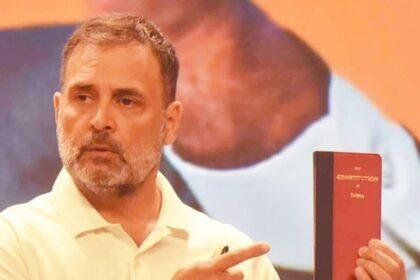BJP MP Khagen Murmu Attacked in West Bengal: Lok Sabha Demands Report from Home Ministry
In a troubling incident that has raised concerns over political safety in West Bengal, BJP Member of Parliament Khagen Murmu and MLA Sankar Ghosh were injured during an attack by a mob in the flood-affected Dooars region. The attack occurred on Monday as the politicians were visiting the area to oversee relief and rescue operations following severe flooding and landslides.
Incident Overview
The Lok Sabha secretariat has formally requested a detailed report from the Union Home Ministry regarding the attack. This request underscores the seriousness of the situation, as it reflects the growing tensions in West Bengal’s political landscape. The Home Ministry has been given a deadline of three days to provide a factual note on the incident, which has drawn significant media attention and public outcry.
Murmu, who represents the Maldaha constituency, was in Jalpaiguri’s Dooars region to assess the impact of the natural disaster and coordinate relief efforts. The area has been grappling with severe flooding, which has displaced thousands and caused extensive damage to infrastructure. The attack on Murmu and Ghosh has raised questions about the safety of political figures in regions affected by natural calamities, where tensions can often escalate.
Political Context
West Bengal has a long history of political violence, particularly between the ruling Trinamool Congress (TMC) and the opposition BJP. The state has been a focal point of political rivalry, especially since the BJP’s significant gains in the 2019 general elections and the 2021 state assembly elections. The BJP has accused the TMC of using violence and intimidation to suppress dissent, while the TMC has countered that the BJP is attempting to destabilize the state.
The attack on Murmu and Ghosh is not an isolated incident but part of a broader pattern of political unrest in West Bengal. In recent years, there have been numerous reports of violence against BJP workers and leaders, particularly during election campaigns. This incident may further exacerbate the already fraught political atmosphere in the state.
Response from Political Leaders
In the wake of the attack, BJP leaders have expressed outrage and called for immediate action against those responsible. The party’s state unit has organized protests to demand justice for Murmu and Ghosh, emphasizing the need for a secure environment for political activities. The BJP’s national leadership has also weighed in, condemning the attack and calling for accountability from the state government.
Conversely, TMC leaders have distanced themselves from the incident, asserting that the party does not condone violence. They have called for a thorough investigation to determine the circumstances surrounding the attack. This response highlights the complexities of political narratives in West Bengal, where accusations and counter-accusations are commonplace.
Historical Precedents
The political violence in West Bengal is not a new phenomenon. The state has witnessed numerous instances of political clashes, particularly during election seasons. Historical events, such as the Naxalite movement in the 1960s and 1970s, have left a lasting impact on the political landscape, fostering an environment where violence has often been used as a tool for political gain.
The current situation can be compared to previous incidents where political leaders faced violence while addressing constituents in conflict-ridden areas. For instance, during the 2019 Lok Sabha elections, several BJP leaders reported threats and attacks while campaigning in TMC strongholds. Such incidents have contributed to a climate of fear and mistrust among political figures, complicating efforts to engage with the electorate.
Implications for Governance and Security
The attack on Murmu and Ghosh raises critical questions about governance and security in West Bengal. As natural disasters become more frequent due to climate change, the need for effective political leadership in disaster management becomes paramount. However, if political leaders are unable to operate safely in affected areas, the efficacy of relief efforts may be severely compromised.
Moreover, the incident highlights the urgent need for improved security measures for politicians, especially in regions prone to political violence. The Home Ministry’s response to the Lok Sabha’s request for a report will be closely scrutinized, as it may set a precedent for how such incidents are handled in the future.
Conclusion
The attack on BJP MP Khagen Murmu and MLA Sankar Ghosh serves as a stark reminder of the volatile political climate in West Bengal. As the Lok Sabha seeks answers from the Home Ministry, the incident underscores the challenges faced by political leaders in ensuring safety while fulfilling their responsibilities to constituents. The ongoing tensions between the BJP and TMC will likely continue to shape the political landscape in the state, making it imperative for all parties to prioritize dialogue and security in the face of adversity.











